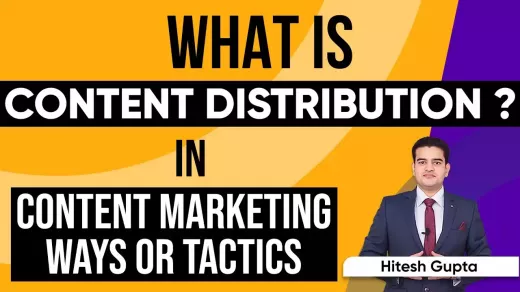Importance of SEO for digital marketers
The importance of SEO for digital marketers cannot be overstated. SEO is the process of optimizing your website and content to rank higher in search engine results pages (SERPs). By ranking higher in SERPs, you can attract more traffic to your website, increase your visibility, and ultimately drive more conversions. SEO is an essential part of any digital marketing strategy, and neglecting it can have serious consequences for your online success.
One of the main benefits of SEO is that it is a cost-effective way to drive traffic to your website. Unlike paid advertising, which can be expensive and difficult to sustain, SEO can provide a steady stream of traffic over time. Additionally, SEO can help you target high-intent keywords, which are more likely to lead to conversions. By optimizing your website and content for these keywords, you can attract visitors who are already interested in what you have to offer.
Another benefit of SEO is that it can help you establish credibility and authority in your industry. When your website ranks higher in SERPs, it signals to users that your website is trustworthy and relevant. This can lead to more backlinks, social shares, and other forms of engagement, which can further boost your online reputation. Overall, SEO is a critical component of any digital marketing strategy, and neglecting it can have serious consequences for your online success.
Understanding search engine algorithms
To be successful at SEO, it's important to understand how search engine algorithms work. Search engines use complex algorithms to determine how to rank websites and content in SERPs. These algorithms take into account a variety of factors, including keyword relevance, content quality, backlink quality, and user experience.
One of the most important factors in search engine algorithms is keyword relevance. This refers to how well your website and content match the keywords that users are searching for. To improve your keyword relevance, it's important to conduct thorough keyword research and analysis. This involves identifying the keywords that are most relevant to your business, and optimizing your website and content to target those keywords.
Another important factor in search engine algorithms is content quality. Search engines prioritize high-quality, relevant content that provides value to users. To improve your content quality, it's important to create original, informative content that is optimized for your target keywords. Additionally, it's important to regularly update your content to ensure that it remains relevant and up-to-date.
Finally, search engines also take into account user experience when ranking websites and content in SERPs. This includes factors such as website speed, mobile-friendliness, and ease of navigation. To improve your user experience, it's important to optimize your website for speed and mobile devices, and to ensure that your website is easy to navigate and use.
Keyword research and analysis
Keyword research and analysis is a critical component of SEO. It involves identifying the keywords that are most relevant to your business, and optimizing your website and content to target those keywords. There are a variety of tools and techniques that can be used for keyword research and analysis, including:
- Google Keyword Planner: This is a free tool provided by Google that allows you to find keywords related to your industry and see how often they are searched for.
- Competitor analysis: This involves analyzing the keywords that your competitors are targeting, and identifying opportunities to target similar keywords.
- Long-tail keywords: These are longer, more specific keywords that are less competitive than broader keywords. By targeting long-tail keywords, you can attract more targeted traffic to your website.
Once you have identified your target keywords, it's important to optimize your website and content to target those keywords. This involves incorporating your target keywords into your website's meta tags, titles, headings, and content. However, it's important to avoid over-optimizing your website and content, as this can lead to penalties from search engines.
On-page optimization techniques
On-page optimization techniques refer to the strategies used to optimize your website's individual pages for search engines. This includes optimizing your website's meta tags, titles, headings, and content. Some on-page optimization techniques to consider include:
- Title tags: The title tag is the text that appears at the top of your browser window when you visit a website. It's important to include your target keywords in your title tags, as this can help improve your keyword relevance.
- Meta descriptions: The meta description is the text that appears below the title tag in search engine results pages. It's important to include your target keywords in your meta descriptions, as this can help improve your click-through rates.
- Heading tags: Heading tags (e.g., H1, H2, H3) are used to structure your content and make it easier to read. It's important to include your target keywords in your heading tags, as this can help improve your keyword relevance.
- Content optimization: It's important to optimize your content for your target keywords, while still providing value to your users. This involves incorporating your target keywords naturally into your content, and ensuring that your content is informative and engaging.
Off-page optimization techniques
Off-page optimization techniques refer to the strategies used to improve your website's reputation and authority in the eyes of search engines. This includes building high-quality backlinks, social shares, and other forms of engagement. Some off-page optimization techniques to consider include:
- Link building: Link building involves acquiring backlinks from other websites. Backlinks are important because they signal to search engines that your website is trustworthy and authoritative. There are a variety of link building techniques that can be used, including guest blogging, broken link building, and outreach.
- Social media: Social media can be a powerful tool for building engagement and driving traffic to your website. By sharing your content on social media, you can attract more backlinks and social shares, which can help improve your website's reputation and authority.
- Local SEO: If you have a local business, it's important to optimize your website for local search. This involves optimizing your website's content and meta tags for local keywords, as well as building citations and reviews on local directories.
Link building strategies
Link building is a critical component of off-page optimization, and there are a variety of link building strategies that can be used. Some link building strategies to consider include:
- Guest blogging: This involves writing high-quality blog posts for other websites in your industry, and including a link back to your website in your author bio or within the content.
- Broken link building: This involves finding broken links on other websites, and reaching out to the website owner to offer a replacement link (i.e., a link to your website).
- Outreach: This involves reaching out to other websites in your industry to offer high-quality content or resources, and asking for a link in return.
When building links, it's important to focus on quality over quantity. High-quality backlinks from authoritative websites are much more valuable than low-quality backlinks from spammy websites.
Link Building | How I Got 3,157 Backlinks in One Year (Step-By-Step Tutorial)
Content creation and optimization
Content creation and optimization is a critical component of SEO. High-quality, relevant content is essential for attracting traffic to your website and establishing credibility and authority in your industry. Some content creation and optimization strategies to consider include:
- Original content: It's important to create original, informative content that provides value to your users. This can include blog posts, infographics, videos, and other forms of content.
- Keyword optimization: It's important to optimize your content for your target keywords, while still providing value to your users. This involves incorporating your target keywords naturally into your content, and ensuring that your content is informative and engaging.
- Regular updates: It's important to regularly update your content to ensure that it remains relevant and up-to-date. This can help improve your search engine rankings and attract more traffic to your website.
Technical SEO considerations
Technical SEO refers to the strategies used to optimize your website's technical infrastructure for search engines. This includes improving your website's speed, mobile-friendliness, and overall user experience. Some technical SEO considerations to keep in mind include:
- Website speed: Website speed is an important factor in search engine rankings. To improve your website speed, you can use tools like Google PageSpeed Insights to identify and fix speed-related issues.
- Mobile-friendliness: With more and more users accessing the internet on mobile devices, it's important to ensure that your website is mobile-friendly. This involves using responsive design and optimizing your website's content for mobile devices.
- Site architecture: Your website's architecture can have a big impact on your search engine rankings. It's important to ensure that your website is well-organized and easy to navigate, with clear categories and subcategories.
Measuring and tracking SEO success
Measuring and tracking your SEO success is essential for optimizing your strategy and achieving your online goals. There are a variety of tools and techniques that can be used to measure and track your SEO success, including:
- Google Analytics: This is a free tool provided by Google that allows you to track your website's traffic, engagement, and conversions.
- Keyword tracking: This involves tracking your website's rankings for your target keywords over time, and identifying opportunities for improvement.
- Backlink tracking: This involves tracking your website's backlinks over time, and identifying opportunities for building new backlinks.
Overall, measuring and tracking your SEO success is essential for optimizing your strategy and achieving your online goals.






.png?size=50)



